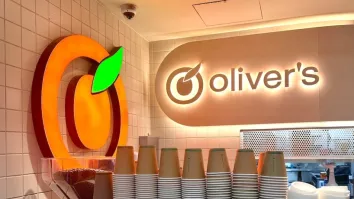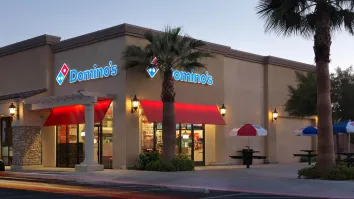Why do QSR brands need strategic procurement?
Written by Thomas Webb, director and principle strategy consultant at Strategy Pantry.
As an independent consultant in the QSR sector, I speak to lots of CEOs and general managers of upcoming brands and the most common response I get when discussing procurement is: “We’re not looking at Supply Chain or Procurement at the moment”.
It begs the question, why not?
If the answers were “We have procurement under control” or “We’re working with great people on that” then that’s another issue, but to be not looking at it at all is simply not possible.
This goes back to a common misconception and if you have read my previous pieces you would have read:
Procurement is not purchasing and a Supply Chain in not a refrigerated truck.
Procurement and Supply Chain go to the core of business and absolutely every other part of your operation relies upon them. If you haven’t identified procurement as a vital part of your business strategy, then you have an incomplete business strategy.
The term is Strategic Procurement; it’s a concept that conjures up mental images of grain silos and shipping containers of raw commodities, but it’s a principle that very few people who bandy the term around actually understand in its’ purest sense. In simplest terms: A Strategic Procurement plan is an integrated plan of supply and service agreements that align with the overall business strategy and add specific criteria - financial, quality and ethical - to every procurement decision that the business faces.
While a solid strategic procurement plan can and will add revenue as well as accountability to your external partners, it also ensures brand compliance and alignment at every level of your business. Standardisation and systemisation is not only a front of house and store operations concern, but ensures that your outlets are aligned on a holistic basis.
In growing brands, it is often store operations staff who are left with the job of “ordering” and with that there can be a lot of unchecked accountability. If one week the staff fail to recognise that the wrong deep fryer oil has been ordered or has been substituted by your distributor, no big deal, is it? Wrong. It’s a big deal as suddenly your product profile has changed between stores. If one customer notices and decides they prefer the chips at Shop A to Shop B, your brand is damaged. If 100 customers notice and half of those post the experience to social media, you’ve just lost control and ownership of your brand messaging altogether. This is only one example of how a less than ideal procurement system can affect your entire brand, and could have been easily avoided with a secure supply chain. Product control and alignment is a key central function of a QSR brand and I cannot stress how imperative it is in all categories.
The security and profitability of your supply chain depends solely on your business relationships. The primary relationship for most brands at their outset and through their initial growth phase is with their foodservice distributor. For the most part, foodservice distributors sell the products with the most favourable terms from their commercial agreements or buying networks. Therefore, what is important to understand is that when your distributor is selling you products it is for their primary benefit. Distributors are motivated by two factors, rebates and margins, and by allowing them to procure your product, you are allowing them to take full advantage of both factors.
Your business network needs to grow with you and the last stakeholder who should be making decisions about the products used in your business is your distributor. You, as the brand, need to own the relationship with all points in the procurement cycle. Form relationships with businesses that will not only gain from your growth, but foster it. By moving past your distributor and forming relationships with primary manufacturers and suppliers you are well on the way to doing this. Manufacturers want to align themselves with innovation and look to the retail and QSR world for inspiration. Let your manufacturers in and share all you can. By allowing them to join your journey, you are building a long-term relationship that will be profitable well into the future.
When choosing your business partners, ask yourself the following:
- Are they relevant? There is probably no need for a close relationship with a dumpling manufacturer if you sell pizzas. It should go without saying, but you would be surprised how many QSR businesses get talked into going off brand by swift talking reps. (Having said that, if you’re putting dumplings on pizzas, reach out and get in touch – I need to see that!)
- Can they facilitate your growth trajectory? It doesn’t matter how great a product is if you cannot get it. There have been many notable and well documented cases of QSR chains being derailed by poor supply chain validation and product availability. Don’t be the next occurrence. Remember it’s your reputation on the line, not your distributor or manufacturer.
- Do they share your vision? In a world where brand personality is as important as the product, the suppliers you use and the methodology you employ to procure has an impact. Does your brand have a position on climate change? If so then you need to keep in consideration issues like carbon miles and overall energy consumption. Does your brand publically advocate for social equality? Then importing products or out sourcing to Bangladesh or China without full visibility may not be a good idea. This is the difference between “talking the talk” and “walking the walk”, and we can all think of instances where consumer brands have been exposed for not doing the latter.
- Can they conform to your brand requirements? Certifications are important. If you are targeting dietary requirements, whether it be lifestyle or health orientated (Organic, Vegan, Gluten Free) or culture based (kosher, halal) ensure that all certifications are readily available. Also, very few distributors will entertain products from manufacturers who do not have HACCP certification, so all these processes need to be in check.
- Are they aligned with your competitors? While not common, it is not unheard of for external interests to share information between clients. I have seen this on both sides and it’s often not obvious. The hint is that if your business partner is giving you inside information about your competition, don’t expect that this is a one-way street. You couldn’t possibly do business solely with interests who were aligned to your brand exclusively, but keep it in mind.
With all relationships coming back to the brand, and all stakeholders looking in one direction, not only have you standardised and systemised your supply chain, but you have established a framework that will grow with you and ensure the consistency and compliance that your brand relies on. These relationships will become ever more vital as your business grows and will be the key players in your strategic procurement plan:
- YOUR product
- YOUR manufacturer
- YOUR distributor
- YOUR outlet
- YOUR customer
By investing in the procurement cycle you have in turn invested in every relationship between manufacturer and customer. In your long term commercial strategy, this lays a solid foundation for your future growth.
Thomas Webb is director and principle strategy consultant at Strategy Pantry and you can contact him via LinkedIn or at [email protected]
























